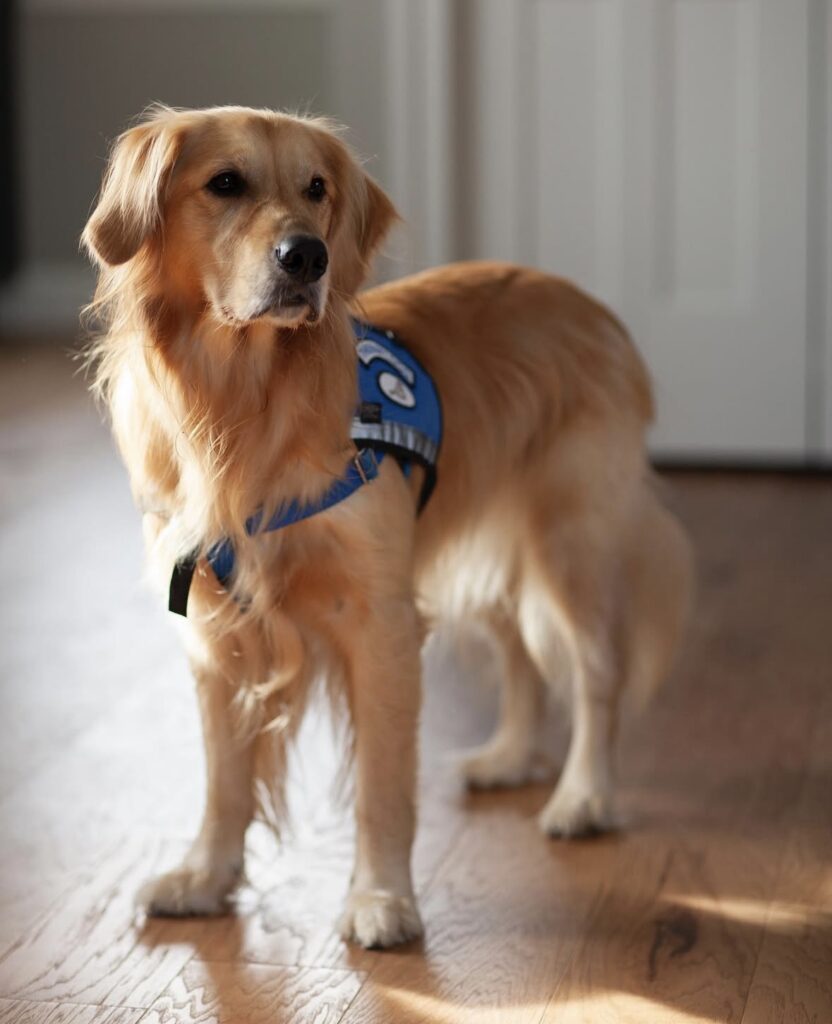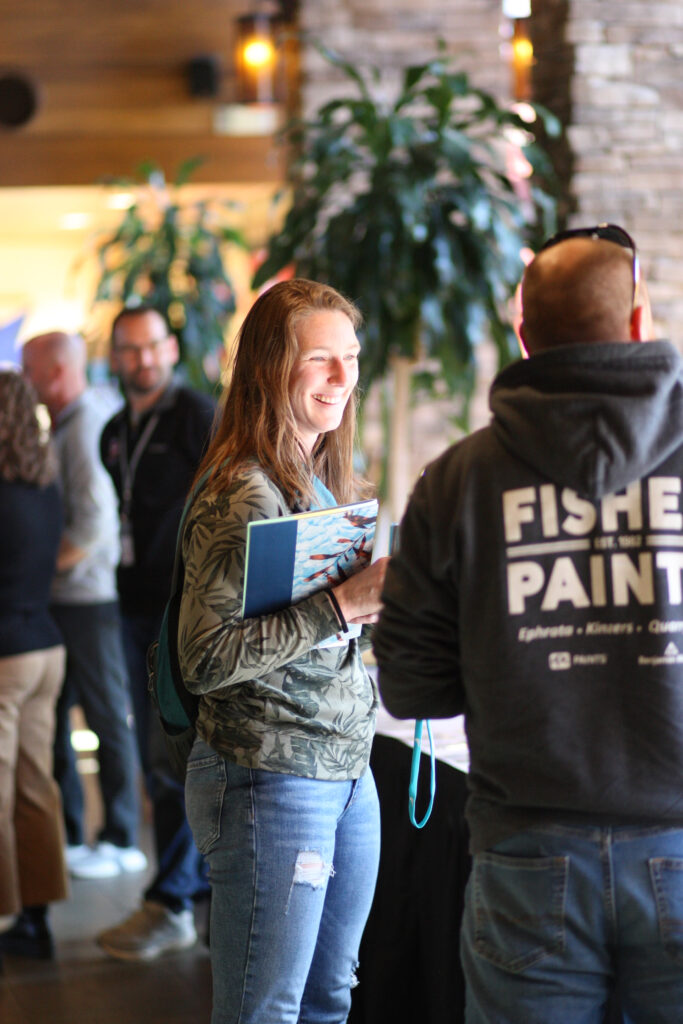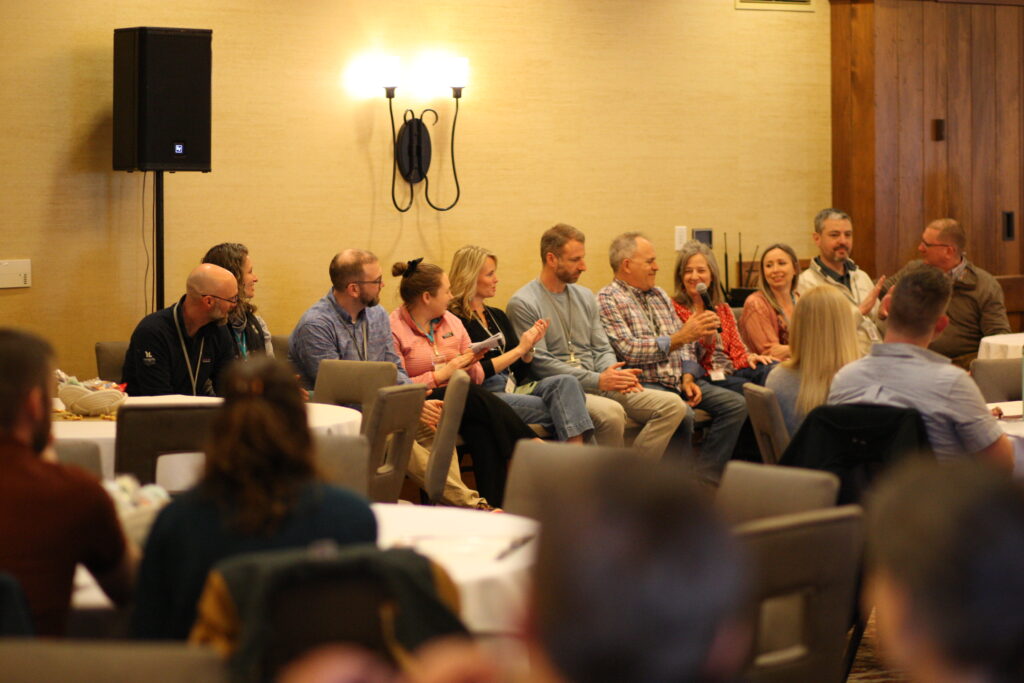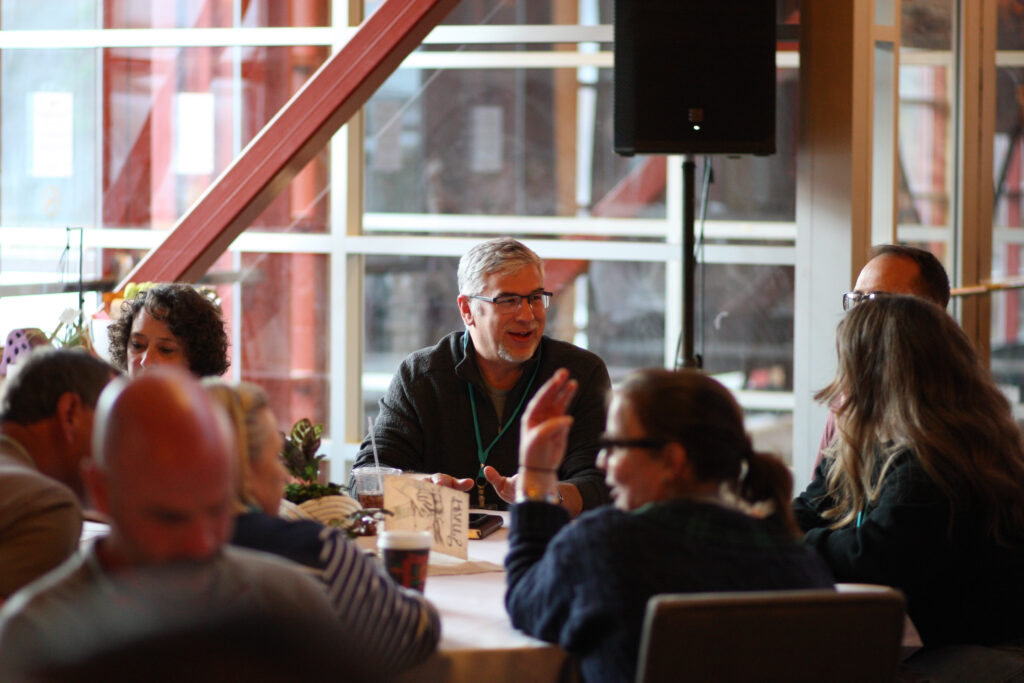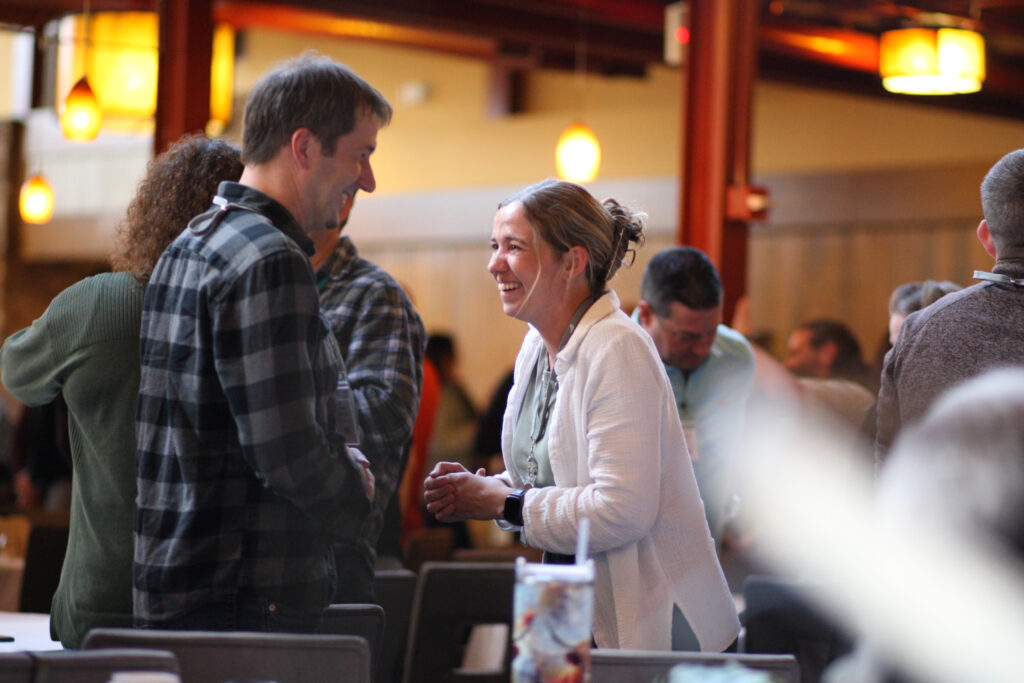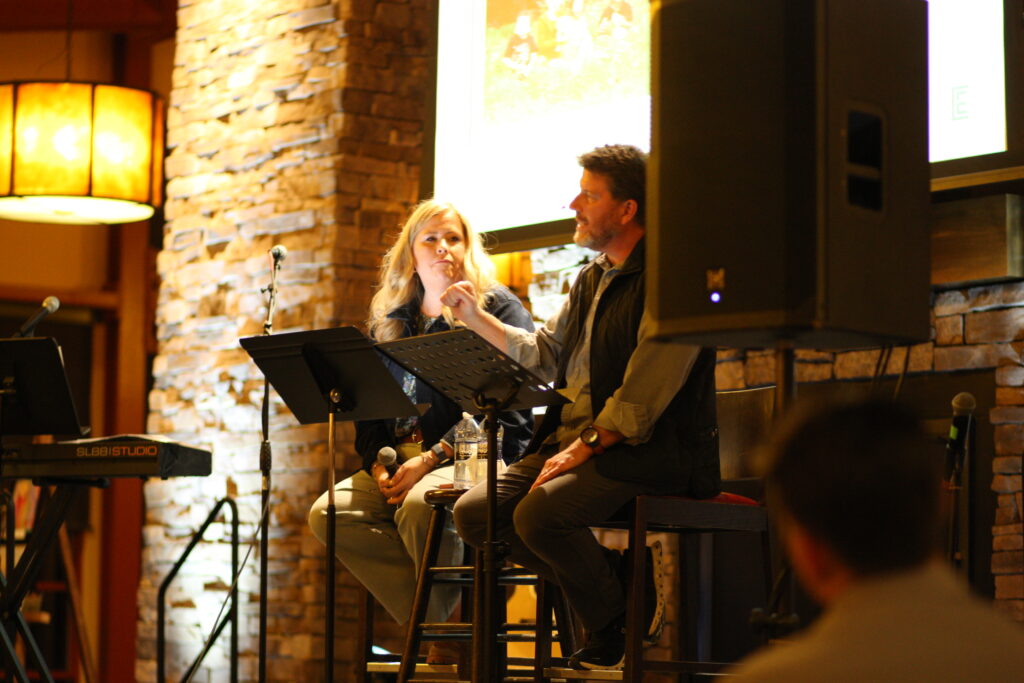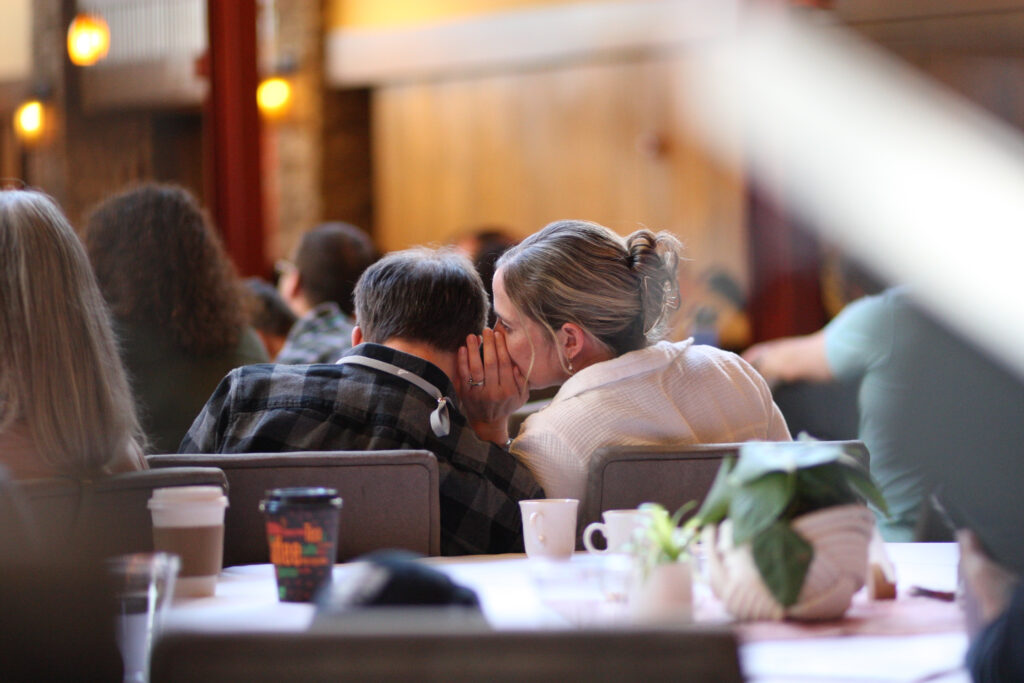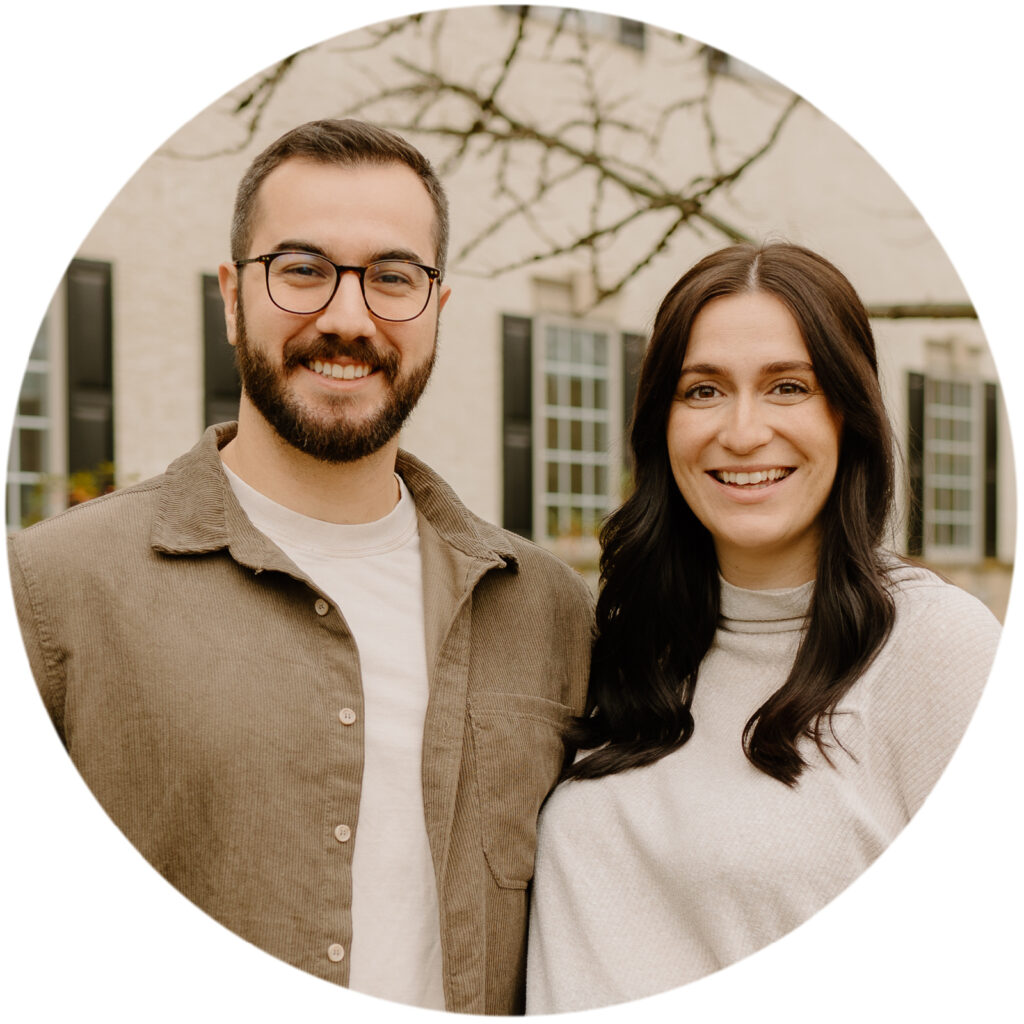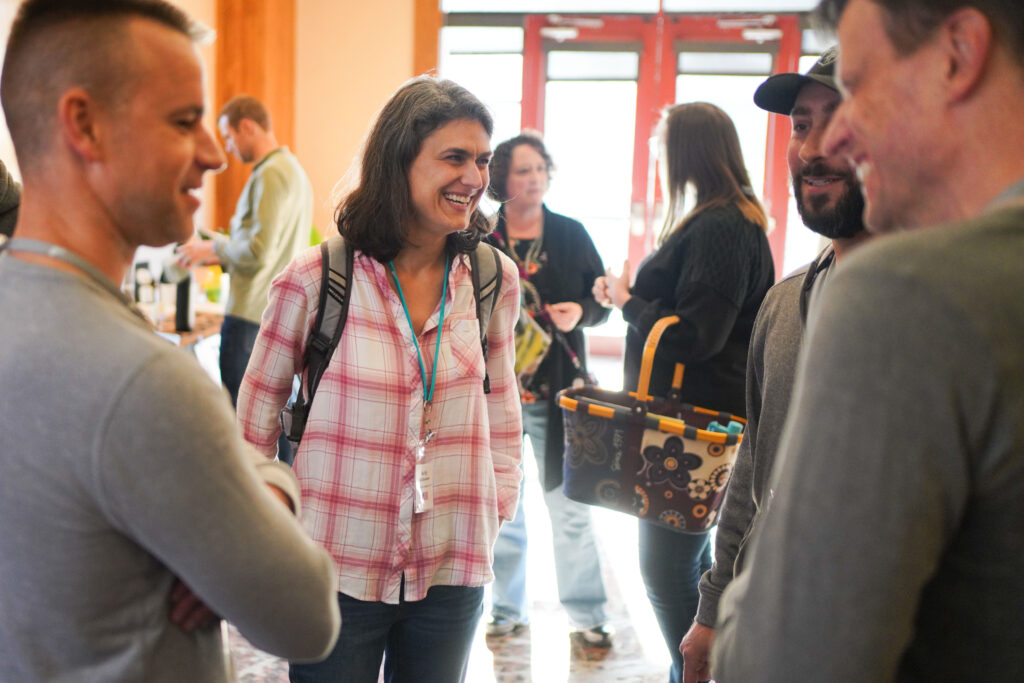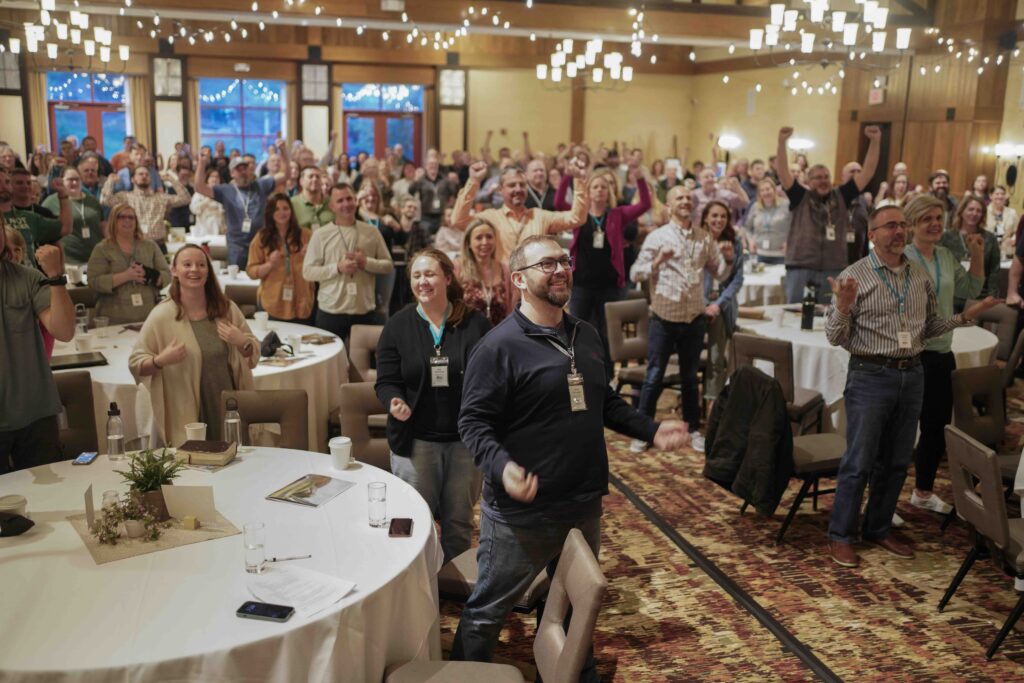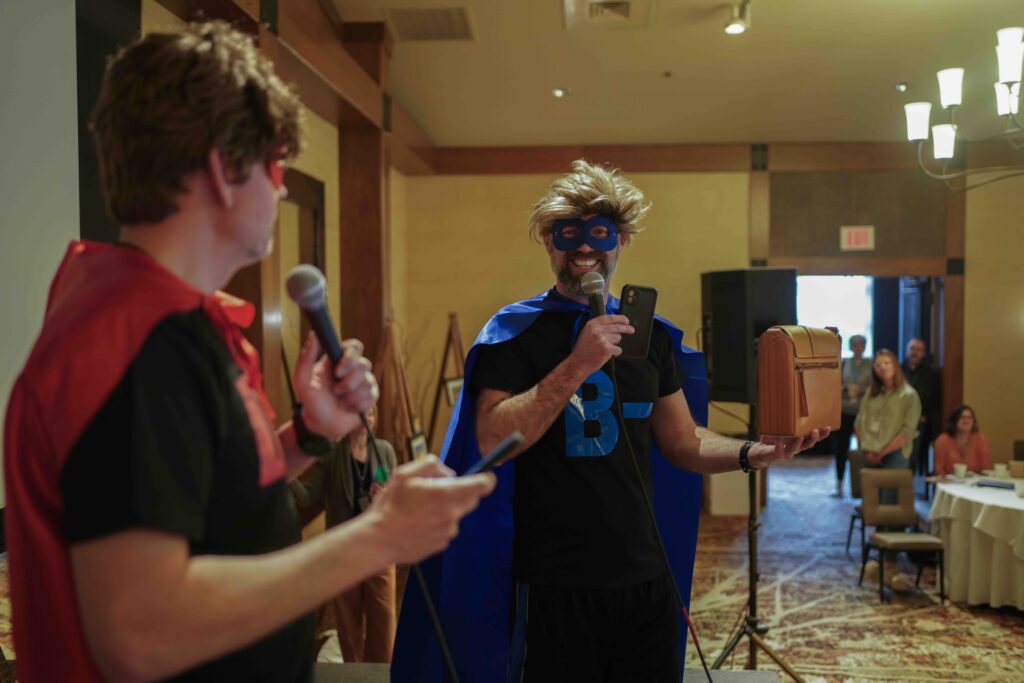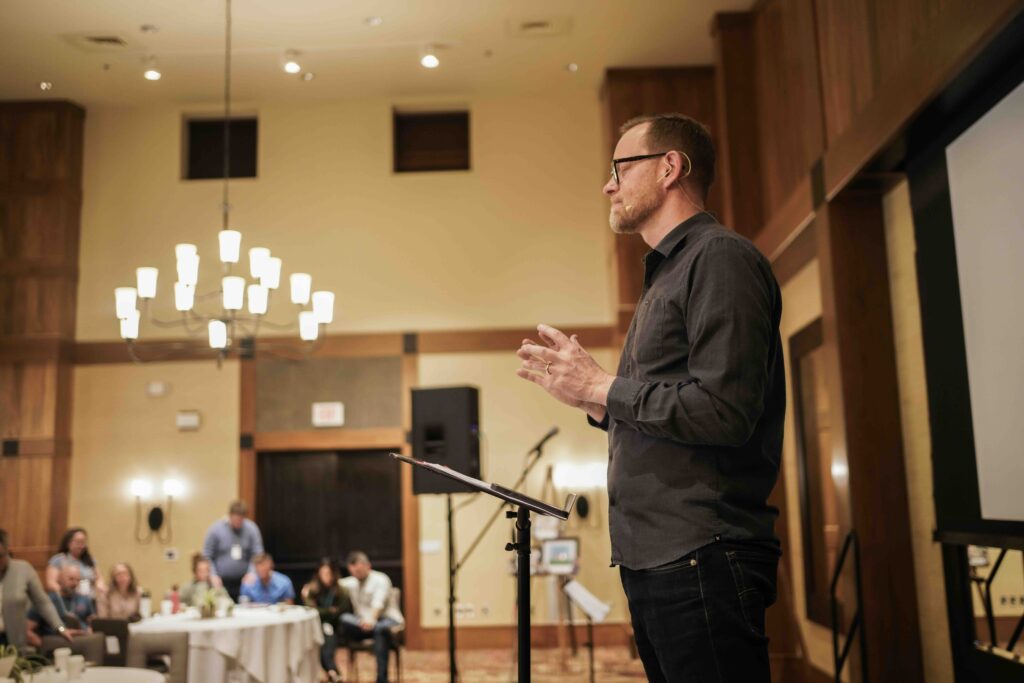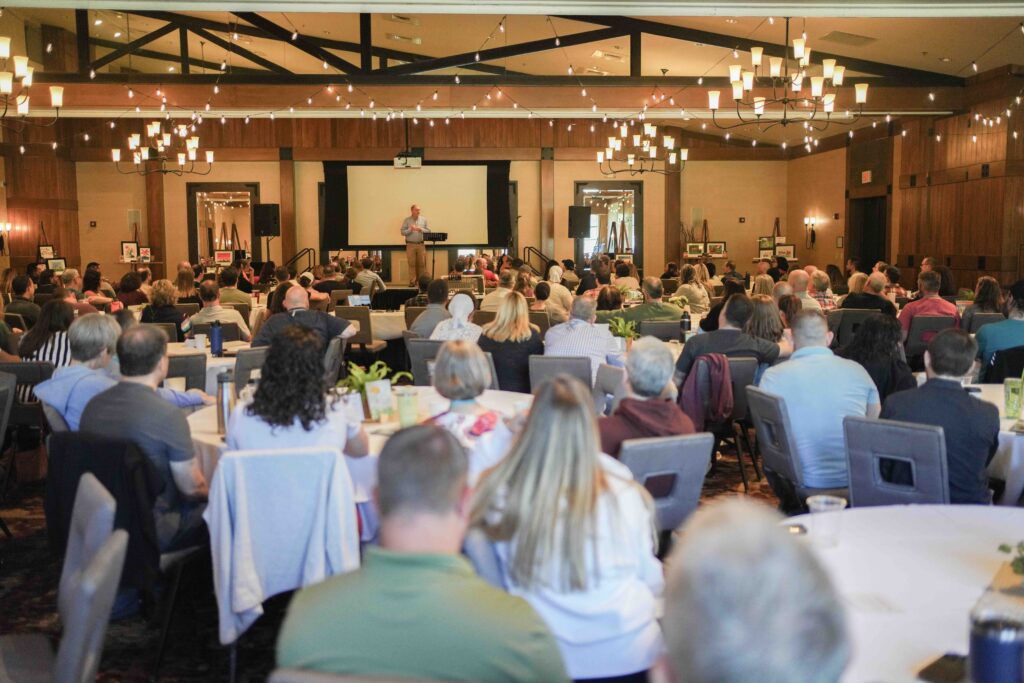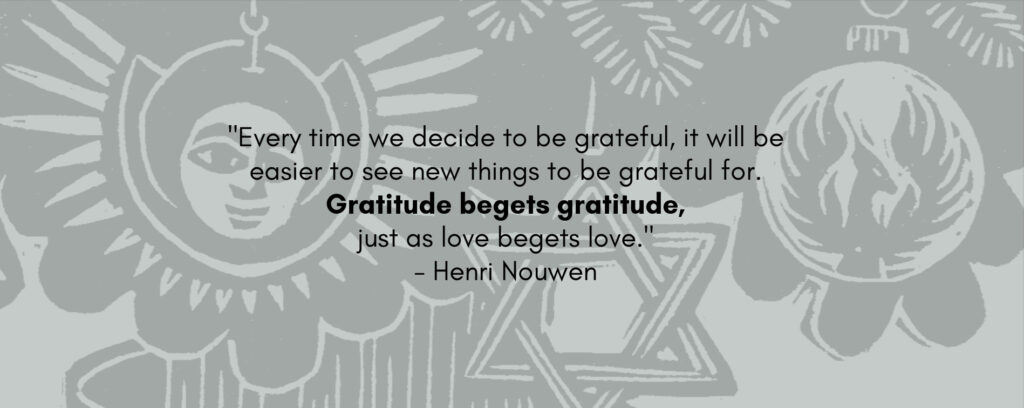“I think we have a dog for you.”
In February 2018, I spoke to two women who were living out their dream of training dogs to serve children about MY dream of integrating a dog to help children and families. They listened to me share what I had been imagining, and they affirmed me in all of it and then told me about a 19-month-old golden they had been training to be a service dog who seemed to be asking for another job. He loved people but didn’t always love working. He preferred hugs.
That phone call started a collaboration that included me driving 30 minutes twice a week for months to train with that golden boy, Louie. The Paws & Affection team intentionally learned about what I do so that they could teach Louie to best partner with me in the work. They creatively taught him how to show his mad, sad, glad, and scared feelings to match how I teach children to express theirs. He moved in with us right before his second birthday and became my shadow, joining me at work everyday and nearly everywhere else as I sought to keep his training sharp and build on it. I had never imagined adding dog training to my skillset. But, Louie made me like it. My free time was spent responding to people pulling over to tell me how handsome my dog was and reading about learning theory and the canine brain. Louie became my hobby. I loved him, and I loved who I became with him.
As my canine cotherapist, Louie was perfectly imperfect. He generously gave hugs and kinda acted like the couch was his that he shared with humans (sometimes willingly, sometimes not as willingly). He loved meeting new people and showing off his feeling word tricks. He whispered secrets in ears, gave gentle cheek kisses when asked, and pawed on cue and often not on cue, always eliciting smiles and laughter and bridging gaps between people. He made a purr sound often back and forth with me in conversation that we called “the golden murmur.” I thought all goldens did it; turns out, they don’t. He played board games and struggled to wait his turn. He really didn’t get it when I tried to teach him to draw with a marker. And, we loved even that. Having Louie in the therapy space was like having another child in the space. He helped kids learn how to read body language, how to ask instead of tell, how to help others feel safe and seen. Most of all, he stuck around; he stayed when it felt hard and he made hard things feel less hard—for kids and grownups, families coming to see me and…me. He calmed me, made me more playful, and grew my confidence as a practitioner innovating to meet the needs of those before me. He brought out good things in me.
Not long after he was placed with us, he had a seizure and later more seizures. And, we did things for him that I never imagined I’d do for a dog. Years into his experience of epilepsy, we had a canine neurologist on speed dial and a cabinet full of medication. When doctors suggested something else, my answer was always yes. We had gotten to the point more recently that our lives were scheduled around his medication schedule, and there were only a few select people I trusted to care for him if we could not. But, I didn’t mind. I would have turned the world upside down for him if one of his vets said we should. The whole family would have. He was worth it.
At 6 1/2 years old, we surprised him with a puppy for Christmas. He loved baby Banks…and sometimes seemed annoyed by his somersaults and energy. But, Louie showed him what being a canine helper looked like—in the therapy space and at home. Louie showed him how to love me well. And, Banks was glad to learn.
I would sometimes ask Louie if he’d promise to outlive me and never leave. He’d show me his spotted tongue and give me long blinks. At 9 years old, he was generally slower—the decaf dog as one friend called him next to Banks the caffeinated one. But, he still wrestled Banks daily, taunted him by grabbing his stuffies, and had pretty awesome zoomies. On Sunday night, he wasn’t himself. He wasn’t so into his dinner and had an upset belly. On Monday morning, I took him to the emergency vet thinking he might have a tummy bug and needed medicine (remember, I would turn the world upside down). But, it turned out that no one could fix the sick that he had. He had a tumor around his heart that was 2x bigger than his actual heart. It grew fast—maybe only in days—had spread, and his heart couldn’t beat much longer. The same boy who jumped out of my car when we got there that morning, saw the building and pulled the other way as if he was saying “No thanks, I’m good,” could no longer lift his head a couple hours later.
We all got to say goodbye–from Texas, from Virginia, and right beside him. Banks too. We all cried. I very proudly cried the hardest for the dog who lived my dream out, who told me I wasn’t crazy. He made me believe I could do this, a confidence that led me to bring home Banks who is now making his own impact in his own special way. Louie leaves behind lots of friends who loved him including kids who cried on him and braided his tail like a show pony. But, of all his friends, I loved him the most (with his human brother Drew a close second). I’m so glad I could to be his person and allow so many to feel like they were his persons too. He was perfectly imperfect whose best therapeutic work in the end was for me.
Click HERE to see some images of Louie doing what he did best.

